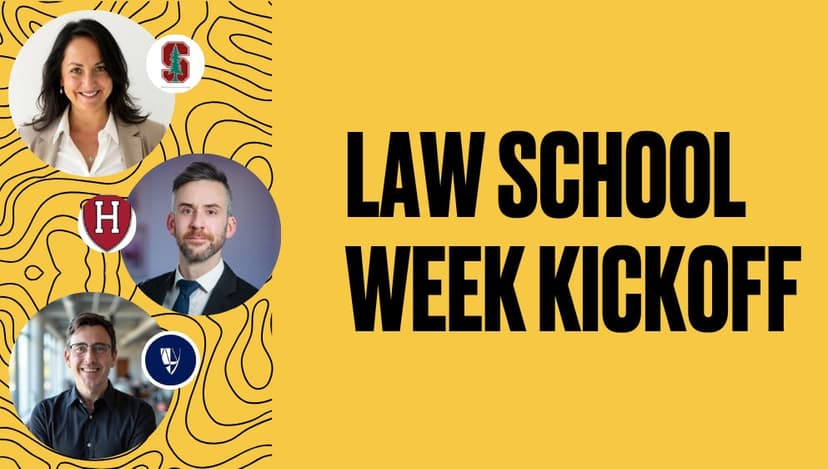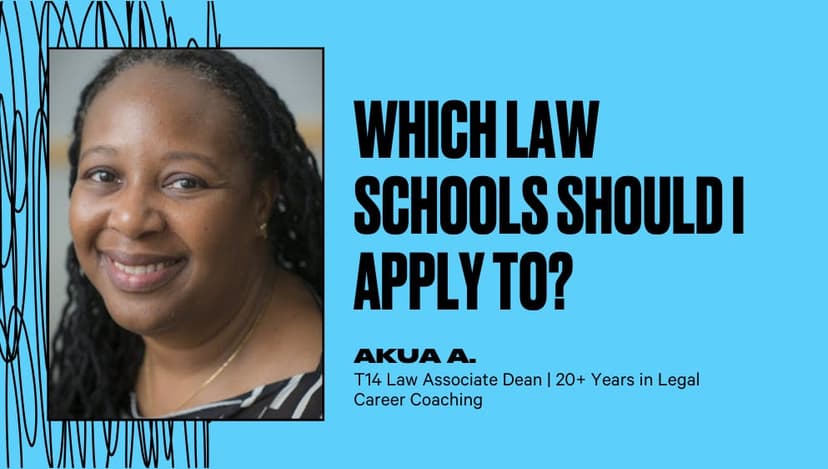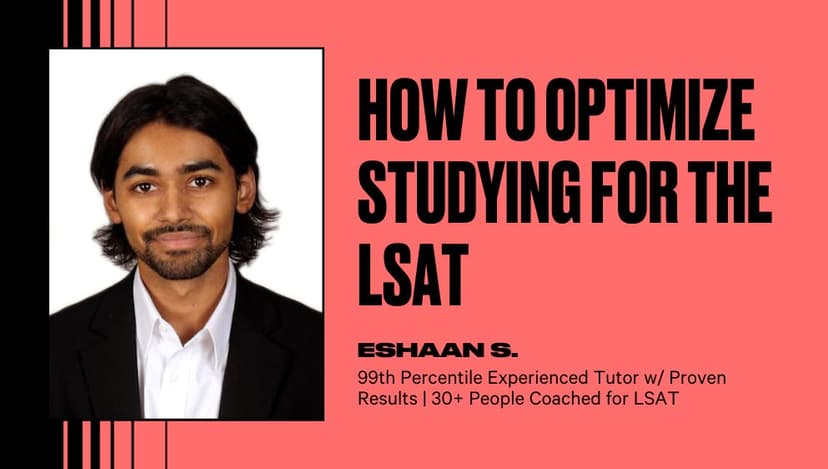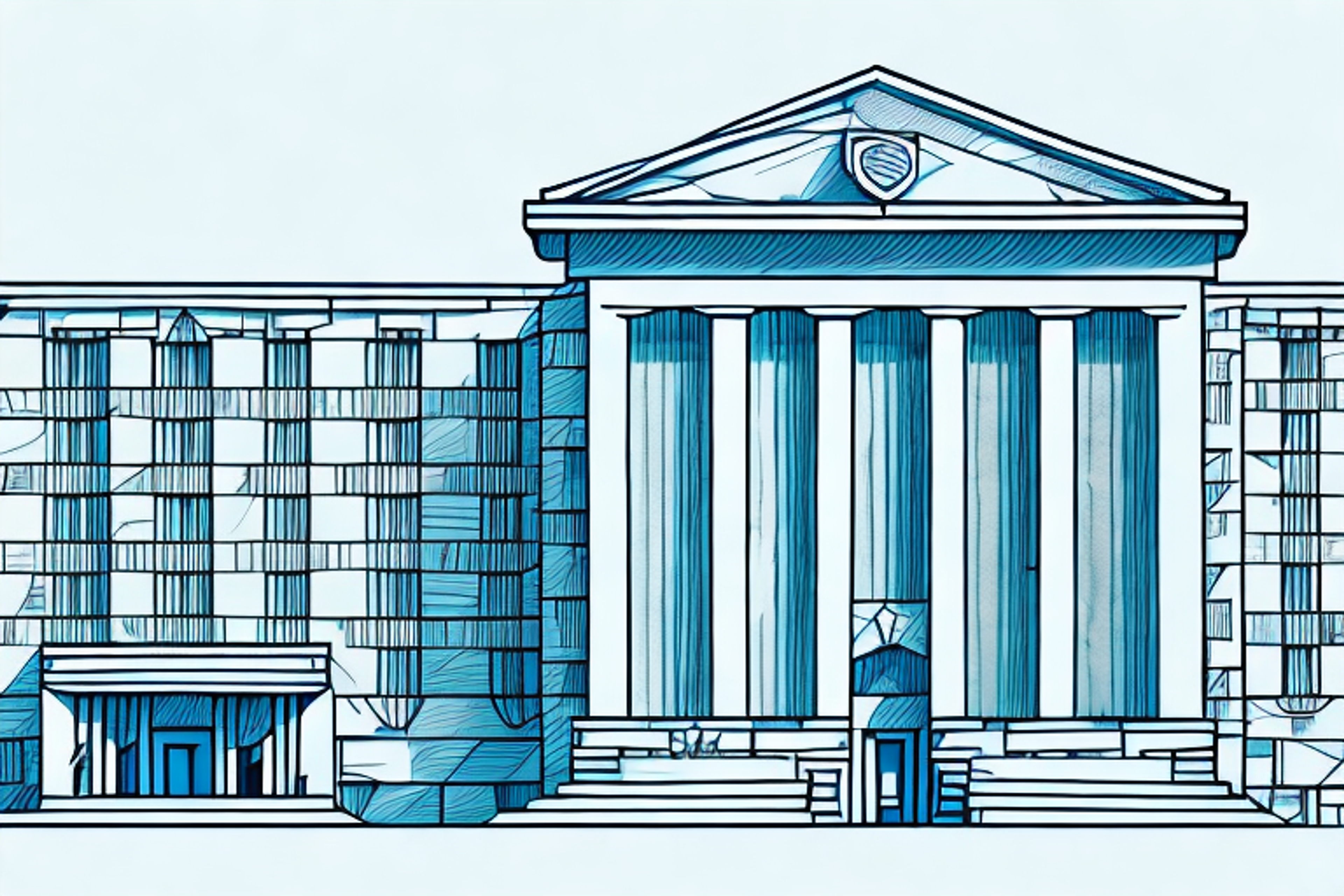How to Ace the Columbia Law School Interview
Applying to Columbia Law School? You'll definitely want to know what to expect during the interview process through this guide.
Posted November 6, 2025

Join a free event
Learn from top coaches and industry experts in live, interactive sessions you can join for free.
Table of Contents
The Columbia Law School interview is a pivotal step in the admissions process, offering applicants a chance to demonstrate their qualifications, passion for law, and fit within the Columbia Law School community. As one of the most prestigious law schools in the US, Columbia Law attracts top-tier candidates, making thorough preparation essential.
This guide provides insights into the interview process, preparation tips, commonly asked questions, and follow-up strategies. Leveraging these steps can help applicants outperform competitors and make a lasting impression.
Read: How to Get Into Columbia Law School
The Columbia Law School Interview Process
The Columbia Law School interview is by invitation only and conducted by members of the admissions committee, often via video conferencing. While not all applicants are selected, those invited should view the interview as an invaluable opportunity. It’s a critical part of the application process, complementing materials like personal statements, academic transcripts, and letters of recommendation.
Interviews typically last 20–30 minutes and assess the candidate’s personal background, extracurricular activities, career goals, and motivations for attending Columbia Law School. The admissions committee also evaluates how well applicants align with the school’s values and their ability to contribute meaningfully to its student community. Applicants considering other top law school programs, such as Harvard Law School (HLS) or Yale Law School (YLS), may find that Columbia’s interview process offers a distinct opportunity to highlight their unique qualities and fit within the university's academic and professional environment.
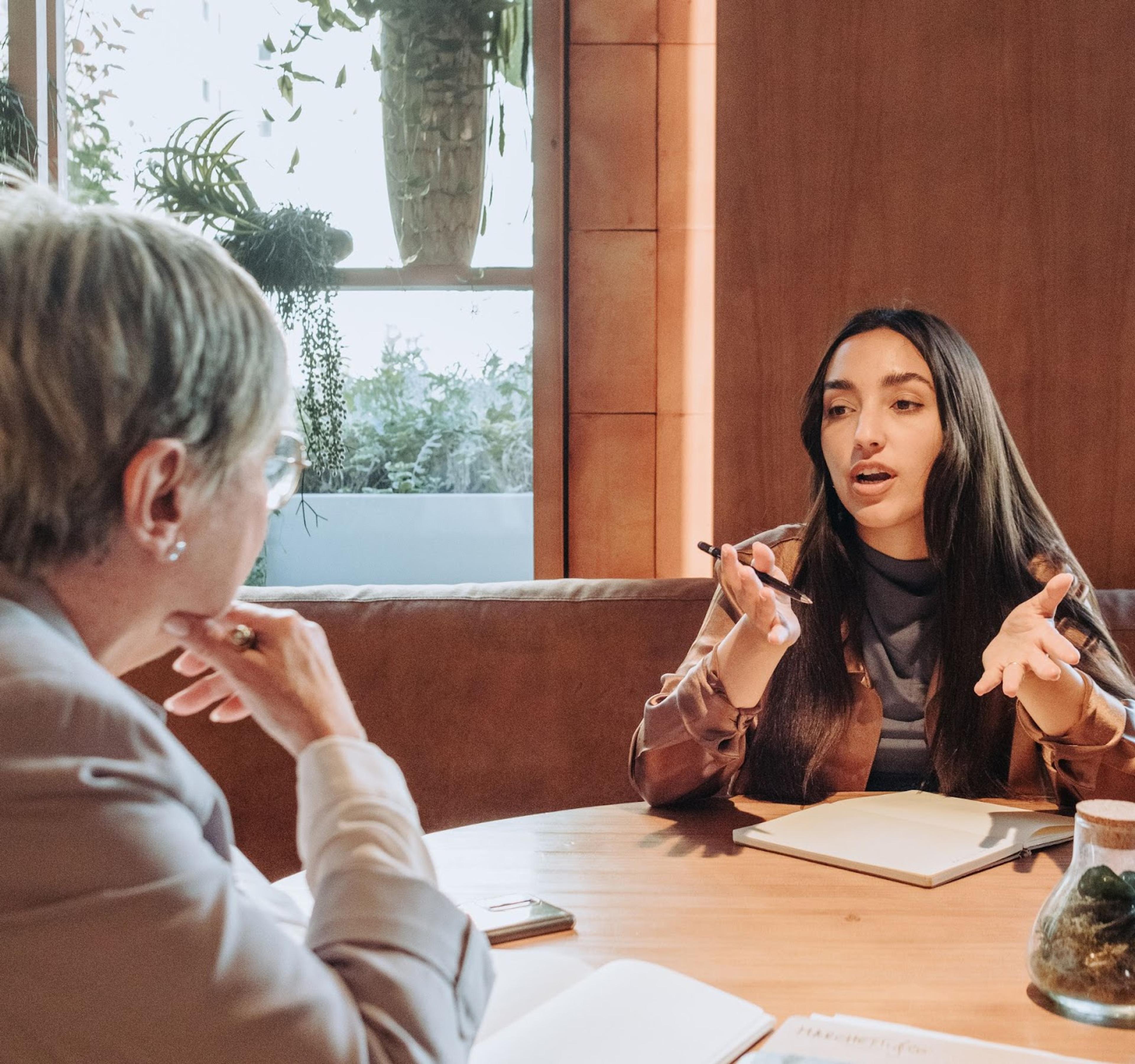
Preparation Tips for the Columbia Law School Interview
Effective preparation is essential to standing out in the Columbia Law School interview. Below is a detailed guide to help applicants excel, offering a tactical approach to research, self-reflection, and logistical planning.
1. Research thoroughly
A deep understanding of Columbia Law School’s mission, programs, and culture is the foundation of effective preparation. Start by exploring the school’s commitment to academic excellence and leadership in the legal profession.
Familiarize yourself with its unique programs, such as specialized courses, legal clinics, and externships, which may align with your career goals. Understanding the vibrant Columbia Law School community is equally important—learning about student organizations, events, and initiatives will help you highlight how you can contribute.
Additionally, consider Columbia’s prime location in New York City and how it supports your aspirations by offering unparalleled opportunities in law, finance, and international affairs. This research will allow you to craft informed and compelling responses during the interview.
2. Review application materials
Thoroughly reviewing your application materials ensures you can confidently discuss your qualifications. Reflect on your personal statement and be ready to elaborate on the key themes and experiences you presented.
This is your opportunity to tie your narrative to your decision to pursue legal education at Columbia Law School. For your academic transcripts, identify strengths and be prepared to address any gaps or trends that demonstrate your growth.
Although you didn’t write your letters of recommendation, understand the general qualities and achievements your recommenders likely emphasized. Being familiar with all these components allows you to present a cohesive and comprehensive picture of yourself to the admissions committee.
3. Anticipate common questions
Preparing for common interview questions is critical to ensuring clarity and confidence. When asked why you want to attend Columbia Law School, provide specific examples that connect your goals to the school’s unique offerings, such as its academic programs or community culture. If prompted to discuss extracurricular activities, explain how leadership roles or volunteer work have influenced your interest in law.
For questions about challenges in the legal profession, show an awareness of pressing issues like access to justice or emerging legal technologies and describe how you hope to address them. If asked why the admissions officer should select you, highlight unique qualities or experiences that distinguish you from other applicants. Practicing responses to these questions ensures you can provide thoughtful and polished answers.
4. Refine personal background and experiences
Your personal background and experiences are key to showcasing your readiness for law school and the legal profession. Discuss your career goals clearly, balancing ambition with a realistic understanding of how Columbia Law will help you achieve them. Highlight professional experiences like internships, research projects, or volunteer work that shaped your interest in law, emphasizing transferable skills such as critical thinking or advocacy.
If pivotal life moments influenced your decision to pursue a law degree, share these authentically and connect them to why Columbia Law is the ideal place to continue your journey. By framing your experiences meaningfully, you can demonstrate your passion and commitment to both the school and the profession.
5. Plan logistically
Logistical planning is just as important as content preparation. Dressing professionally in business attire sets the tone for a confident and polished appearance; avoid clothing that is too trendy or casual. For virtual interviews, test your video setup ahead of time to ensure your camera, microphone, and internet connection work seamlessly. Choose a quiet, well-lit space with minimal distractions to maintain focus.
Organize your materials, such as your resume and application documents, for easy reference during the interview. Finally, manage your time carefully, arriving early for in-person interviews or logging in 10 minutes before a virtual session. These logistical steps demonstrate your respect for the process and ensure a smooth interview experience.

T14 Law School Interview Question Bank
All the most commonly asked interview questions at T14 programs compiled into one guide.
Common Interview Questions with Sample Answers
Below are commonly asked questions in a Columbia Law School interview, along with detailed sample answers to help you craft your own responses.
Why Columbia Law School?
"Columbia Law School stands out to me because of its strong emphasis on combining rigorous academic training with practical legal experience. I am particularly drawn to the Human Rights Clinic, which aligns with my goal of advocating for marginalized communities globally. Additionally, Columbia's location in New York City provides unparalleled opportunities to network with professionals at top law firms and international organizations. The vibrant Columbia Law School community and its collaborative environment make it the perfect place to grow both academically and personally. I also appreciate Columbia’s strong alumni network, which demonstrates the school’s commitment to lifelong professional development."
Why law?
"My passion for law stems from a desire to create meaningful change in the lives of others. During my undergraduate studies, I interned at a nonprofit organization focused on housing rights. I witnessed firsthand the impact of legal advocacy in helping families secure stable housing. This experience solidified my decision to pursue a career in law, as I realized the law's power to address systemic inequities and provide a voice for underserved communities. I am particularly motivated by the intellectual challenges of law and the opportunity to craft solutions to complex societal issues."
What are your career goals, and how do they align with attending law school?
"My ultimate career goal is to become a corporate attorney specializing in sustainability and environmental compliance. With the increasing focus on corporate responsibility, I believe there’s a critical need for legal experts who can guide businesses toward sustainable practices. Attending Columbia Law School will allow me to gain expertise in corporate law through its advanced coursework and externship opportunities with leading firms in New York City. The Law School’s focus on interdisciplinary studies also provides an excellent platform for me to integrate my background in environmental science with my legal education."
How do you see yourself contributing to the Columbia Law School community?
"I look forward to contributing to the Columbia Law School community through active participation in student organizations such as the Environmental Law Society. I would also love to collaborate with peers on initiatives that promote diversity and inclusion, building on my experience leading similar efforts during my undergraduate years. Furthermore, I hope to bring a unique perspective to classroom discussions, drawing from my work experience in policy research and grassroots advocacy. I am excited to mentor first-year students as they navigate law school, fostering a sense of collaboration and support within the Columbia community."
What legal issues are you passionate about, and how do you plan to address them?
"I am deeply passionate about the intersection of technology and privacy law, particularly as it relates to the ethical use of artificial intelligence. This field presents unique challenges, such as ensuring transparency and preventing discrimination in algorithmic decision-making. I plan to address these issues by specializing in technology law and collaborating with policymakers to draft regulations that protect individual rights while fostering innovation. At Columbia, I hope to engage with faculty research on technology ethics and participate in the Data Law Initiative to further explore this critical area."
Why should the admissions committee choose you over other applicants?
"I believe my diverse experiences and unwavering commitment to the legal profession set me apart. My background in both policy analysis and grassroots advocacy has equipped me with a well-rounded perspective on the law’s impact at different levels of society. Additionally, I bring a collaborative and empathetic approach to problem-solving, which I believe aligns well with Columbia Law School’s values. My proactive nature and dedication to excellence will allow me to contribute meaningfully to the classroom and the broader Columbia Law School community. Most importantly, I am ready to embrace the intellectual rigor and challenges of Columbia, making the most of the opportunities it offers."
Expert Tip: Working with a top law school admissions coach can provide personalized feedback and strategic insights to refine your Columbia Law School interview responses. These experts specialize in helping applicants stand out and navigate the competitive admissions process with confidence.
Insights from Successful Applicants
Insights from past applicants reveal that authenticity and preparation are essential. Highlighting personal experiences that demonstrate resilience, leadership, and passion for legal education can make a strong impression. Successful candidates often emphasize Columbia’s location in New York City and its unparalleled opportunities for practical legal experience.
One applicant shared that articulating a genuine interest in Columbia and preparing for specific questions, such as “Why Columbia?” was crucial. They also noted the importance of demonstrating readiness for the academic rigor and community engagement that Columbia Law School expects.
Dos and Don’ts of the Columbia Law School Interview
Do…
- Dress professionally in business attire, ensuring your appearance reflects the seriousness of the interview, and always arrive early if attending in person.
- Prepare thoughtful, specific questions about Columbia Law’s programs, the admissions process, or the school’s culture to demonstrate your genuine interest and research.
- Maintain eye contact with the interviewer, actively listen, and respond thoughtfully to show engagement and respect for the conversation.
- Bring a copy of your resume and other relevant materials to reference if needed during the discussion.
- Follow up with a polite thank-you note expressing your gratitude for the opportunity and reaffirming your interest in Columbia Law School.
Don’t…
- Avoid making any negative remarks about other law schools, colleagues, or aspects of the legal profession, as this can reflect poorly on your character.
- Do not overshare personal weaknesses unless you can clearly articulate how you are addressing them and what you’ve learned from the experience.
- Never interrupt the interviewer or dominate the conversation; allow the discussion to flow naturally and remain respectful of the interviewer’s role.
- Refrain from appearing unprepared by failing to research the school or stumbling over key aspects of your own application.
- Don’t bring overly personal or unrelated topics into the conversation, as this can detract from the professional tone of the interview.
How to Effectively Follow Up After Your Columbia Law School Interview
Following up after your Columbia Law School interview is a crucial step in demonstrating professionalism, gratitude, and continued interest in the program. A thoughtful follow-up note serves as an opportunity to thank the interviewer for their time, reaffirm your enthusiasm about attending Columbia, and emphasize key points from your discussion. This small yet significant gesture can leave a lasting impression on the admissions committee.
In your follow-up message, express genuine appreciation for the opportunity to interview and reflect on specific highlights from your conversation that resonated with you. For example, you might mention insights shared by the interviewer about Columbia Law’s programs, the school’s culture, or other unique aspects of the institution. Reiterating your excitement about joining the Columbia Law School community reinforces your commitment and enthusiasm for the program.
Sending your note within 24–48 hours demonstrates both attentiveness and respect for the admissions process. This prompt action not only showcases your organizational skills but also aligns with the qualities Columbia seeks in its candidates—diligence, attention to detail, and professionalism. A well-crafted follow-up can subtly remind the interviewer of your strengths and reinforce your position as a strong candidate for admission.
Comparison of On-Campus and Off-Campus Interviews
Columbia Law School offers both on-campus and off-campus interview formats, ensuring accessibility for applicants regardless of location. Importantly, both formats are evaluated equally by the admissions committee, meaning there is no advantage to choosing one over the other. However, understanding the nuances of each can help applicants decide which option suits their circumstances best.
- On-campus interviews provide applicants with an immersive experience. By visiting Columbia Law’s New York City campus, candidates gain a firsthand understanding of the school’s environment, culture, and resources. This format allows for deeper engagement with the Columbia Law School community, as applicants may have the opportunity to interact with current students, tour the facilities, and get a feel for the campus atmosphere.
- Off-Campus Interviews, on the other hand, offer flexibility for applicants who live far from New York City or face travel constraints. These interviews are often conducted virtually or in regional hubs, making them a convenient option for international or geographically distant candidates. Despite the lack of an in-person campus experience, applicants can still connect meaningfully with the admissions committee through thorough preparation and a professional demeanor.
Both formats provide an opportunity for applicants to showcase their strengths and learn more about Columbia Law School. Regardless of the format chosen, preparation, professionalism, and authenticity remain key to making a positive impression.
How the Interview Fits into the Admissions Process
The Columbia Law School interview is a valuable part of the holistic admissions process, designed to complement other application components such as LSAT scores, academic transcripts, letters of recommendation, and personal statements. While the interview is not the sole determinant of admission, it allows the admissions committee to gain insights into an applicant’s personality, communication skills, and motivation that may not be fully conveyed in written materials.
Through the interview, candidates can present a personal dimension to their application by articulating their career goals, discussing pivotal experiences, and demonstrating their enthusiasm for legal education at Columbia. For example, applicants can explain how their preparation for the last LSAT administration date shaped their academic discipline or discuss how their long-term ambitions to practice law align with Columbia Law School’s rigorous training. Additionally, candidates can use the interview to address logistical aspects of their application process, such as confirming they have met the financial aid application deadline, underscoring their proactive approach to securing resources for their education.
The interview also offers applicants a chance to highlight qualities like resilience, leadership, and intellectual curiosity, which are critical to thriving in Columbia Law School’s academic environment. Given its importance, preparing thoroughly for the interview is essential. Applicants should view the interview as a unique platform to enhance their application and distinguish themselves from other candidates. When approached thoughtfully, the interview can serve as a pivotal moment in the admissions process.
Insights into the Admissions Committee’s Perspective
The admissions committee at Columbia Law School uses the interview as a tool to assess qualities that are not always apparent in written application materials. Beyond academic performance and standardized test scores, the committee seeks to evaluate an applicant’s professionalism, interpersonal skills, and ability to articulate their ideas effectively.
Key traits the committee looks for include enthusiasm for legal education, a clear understanding of Columbia Law’s unique offerings, and the potential to contribute meaningfully to the school’s community. Problem-solving skills, ethical decision-making, and adaptability are also closely examined, as these attributes are essential for success in both law school and the legal profession.
Through the interview, the committee aims to identify candidates who not only excel academically but also embody the values and qualities that define the Columbia Law School community. Applicants who prepare thoroughly, communicate authentically, and present a cohesive narrative about their goals and motivations can make a strong impression and position themselves as ideal candidates.
The Next Step to Ace the Columbia Law School Interview
The Columbia Law School interview is your opportunity to highlight your accomplishments, demonstrate your passion for the legal profession, and show how you’ll contribute to the Columbia Law School community. To ensure you present your best self and stand out in a competitive applicant pool, consider working with a top law admissions coach.
These experts can provide personalized feedback, help you refine your responses, and equip you with the strategies needed to approach your interview with confidence. Taking this extra step can make all the difference in maximizing your chances of admission.
Read next:
- A Guide to the Yale Law School Interview Process
- A Guide to the University of California--Berkeley School of Law Interview Process
- Columbia JD/MBA – Program & Application Overview
FAQs
Does Columbia Law interview all applicants?
- While we are unable to interview all candidates who submit an application for admission, some candidates may be contacted for interviews during the admissions process.
How difficult is it to get into Columbia Law School?
- The Columbia University Law School acceptance rate is 11.75%. Students who use law school admissions consulting in New York through Juris Education can increase their odds to 94%.
Read: T14 Law Schools: Acceptance Rates & Class Profiles
What does Columbia Law School look for in applicants?
- The Admissions process at the Law School is designed to identify and select a student body of diverse backgrounds and interests that shares a discernible commitment to excellence—individuals who have demonstrated unusual promise for distinguished performance at the Law School.
How does Columbia evaluate applicants?
- Columbia is test-optional and does not have a "cut-off" GPA or test score for admission, and academics are considered alongside the full application. They read your personal statement to try to understand your perspective and how you engage with the world around you.
Read: How to Write a Powerful Personal Statement for Your Law School Applications
How prestigious is Columbia Law School?
- Columbia University is ranked No. 8 out of 196 in Best Law Schools. Schools were assessed on their performance across a set of widely accepted indicators of excellence.
How long does it take to hear back from Columbia Law?
- Typically, the admissions committee begins rolling out decisions in December and continues to release decisions until early February. The online application must be submitted and all application materials for the CAS report must be sent to LSAC well in advance of the application deadline.
How many letters of recommendation for Columbia law?
- Applicants may submit more than two letters of recommendation but should be aware that their applications may be deemed complete and forwarded to the Admissions Committee once the required number of recommendations from law school faculty have been received.
What time do Columbia law decisions come out?
- Columbia Law School states that if the application is submitted before December 31, the decision will be released before March; if the application is submitted by the regular deadline on February 15, the decision will not be released until the end of April.
What is Columbia Law famous for?
- Columbia Law School is renowned for the intellectual rigor of its curriculum and the groundbreaking scholarship of its faculty.
Why choose Columbia Law School?
- Columbia Law School offers students unique and unparalleled learning experiences inside and outside of the classroom, preparing them to succeed in every phase of their careers and to serve as leaders in the legal profession—whether the private sector, government, or public interest—and beyond.
Browse hundreds of expert coaches
Leland coaches have helped thousands of people achieve their goals. A dedicated mentor can make all the difference.
